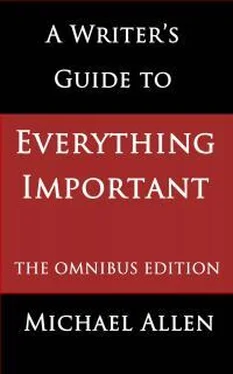Narrative Technique was at one time quite a well-known work but is now forgotten. However, Uzzell also wrote Writing as a Career (1938) and The Technique of the Novel (1947, revised 1959). And, courtesy of some digital entrepreneur, you can now buy a Kindle reprint of the Technique of the Novel. If you’re a novelist, I advise you to read it.
6. What does the punter want?
The word ‘punter’ is, perhaps, a rather vulgar term, but then I’m a vulgar fellow, and I prefer plain words to fancy ones on the whole. The primary meanings of punter (I have just looked it up) are: one who gambles or places a bet; and a customer or client (often of a prostitute). Earlier dictionary definitions used to include a member of an audience.
For our purposes the word ‘punter’ will serve very well, because it covers both readers of novels and the audiences for dramatic productions. And, since all readers and audience members are gamblers, in the sense that they are laying down money in the hope that the book or play will deliver what they want, the word is doubly appropriate.
So, what does the punter want? When she buys a novel, or a ticket to the opera, what does she hope to get for her money?
What she wants, in my opinion, is a dose of emotion. To be precise, a satisfying emotion.
If you’ve lived as long as I have, you will have noted the massive growth of the entertainment media in parallel with the industrialisation of society and the alienation of the individual members of society. Oh dear, that sentence is, I fear, excessively sesquipedalian. What I am trying to say, in plain English, is that lots of people who live and work in the modern world are thoroughly browned off, and they are desperate for a bit of entertainment. They turn to novels, plays, films, TV programmes, music, and various other media and art forms, in the hope that one or more of these things will help them to feel a little better.
There is nothing new or original about this idea that art is used to overcome alienation. For example, I have on my bookshelf a collection of essays first published in America in 1928 and entitled The Art of Playwriting . One of the contributors to this book had an acquaintance called Jennie, who worked long hours in a beauty parlour. In the 1920s Jennie had this to say:
‘When I go home at night I’m too tired for anything. I can’t sleep, I can’t read, I can’t speak, and I don’t want nobody to speak to me. But for five cents I can go to the movies and sit and rest and see things I never could see any other way – grand people, wild animals, foreign cities, wonderful houses and strange beautiful things. And I forget about myself and go home all made over. And the things I have to stand from him [her husband] don’t seem half so hard.’
Not exactly difficult to understand, is it?
The punter wants to be made to feel emotion. She wants to come out of the cinema, or finish reading a novel, feeling in some sense stronger than before; uplifted, if you will; moved.
This desire is reflected in our everyday conversations. A colleague at work tells us that last night she saw the latest movie that everyone is talking about. ‘Oh,’ we say, ‘and was it good?’ What we mean by that question is, Did the movie deliver a satisfying emotion? Did you come out feeling better than when you went in, or did you think it was all a waste of time?
This emotional effect is, perhaps, more obvious in the communal arts, such as the theatre, cinema, and the concert hall, than it is in the case of the short story or the novel; but fiction, of course, is capable of doing exactly the same job.
Given what we now know about what the punter wants, what can we say about the definition of a sensible purpose – a sensible set of intentions – for the working writer?
Once again, we find that other thinkers are well ahead of us. Here is Edgar Allan Poe (1809-49) writing about the art of the short story:
‘A skilful literary artist has constructed a tale. If he is wise, he has not fashioned his thoughts to accommodate his incidents; but having conceived, with deliberate care, a certain unique or single effect to be wrought out, he then invents such incidents – he then combines such events as may best aid him in establishing this preconceived effect. If his very initial sentence tends not to the outbringing of this effect, then he has failed in his first step. In the whole composition there should be no word written of which the tendency, direct or indirect, is not to the one pre-established design. As by such means, with such care and skill, a picture is at length painted which leaves in the mind of him who contemplates it with a kindred art a sense of the fullest satisfaction. ’ (Poe’s italics.)
You will discover, as we proceed, that in this one paragraph Poe has condensed almost every important truth about the writer’s task and the role of emotion in art generally.
To paraphrase Poe in more modern English: The writer’s job is to decide what emotion to create in the punter, and to write a novel (or short story, or play) which generates that emotion.
You might now have a look back at what you wrote on that piece of paper, about what you thought you personally were trying to do as a writer.
The odds are that you will have written down something like this: I feel the urge to express myself. Or, There is a story inside me and I want to put it on paper. Or, I want to satisfy a longing.
If what you wrote comes anywhere near to matching what I have stated in my paraphrase of Poe, then you have my congratulations.
If you have written down something else entirely, that’s fair enough. But let’s have a look at some of the possible statements that I listed above.
I feel the urge to express myself . What this usually means is something like, I want to pose as an author and appear on TV and have everyone admire me. Oh, and I want to earn lots of money. Thanks.
Unfortunately, as I discovered at an early age, no one cares about what a writer wants. When our sample punter comes out of the movie she doesn’t give a damn about whether the scriptwriter has expressed herself or not. All she cares about is whether the movie made her laugh or cry.
There is a story inside me and I want to put it on paper . Fair enough, but remember that the whole point of putting the story on paper is to produce an emotional affect in the reader. How you feel when you’re writing the story is irrelevant.
I want to satisfy a longing . Yup, but it’s the reader’s longing you need to concentrate on, and not your own. Again, nobody cares very much what you want. If the book-buyer or theatre-goer is going to pay full whack for your book or play, they expect you to pay close attention to their needs, not your own. It’s the customer who is supposed to feel better after a steam bath, not the man who stokes the boiler.
7. Turning principle into practice
In principle, as we have seen, the matter is simple. A writer’s job is to create emotion in the reader, or the audience for a play. But, in practice, this is pretty darned tricky.
One of the factors which makes it tricky will be revealed if we contemplate that final phrase of Poe’s: a sense of the fullest satisfaction.
That sense, or feeling, is what us punters want to be left with at the end of a book, or when we come out of the theatre. But just a minute – does that mean that all books and plays must have a happy ending?
Obviously not. There is a well-known phenomenon in the cinema known as the weepie, or the three-handkerchief movie. This is a sad film which the audiences (usually female in this case) somehow think is absolutely wonderful. And then, of course, there are all those tragedies by William Shakespeare, which seem to have lasted pretty well despite the fact that the leading characters often end up dead.
Читать дальше












